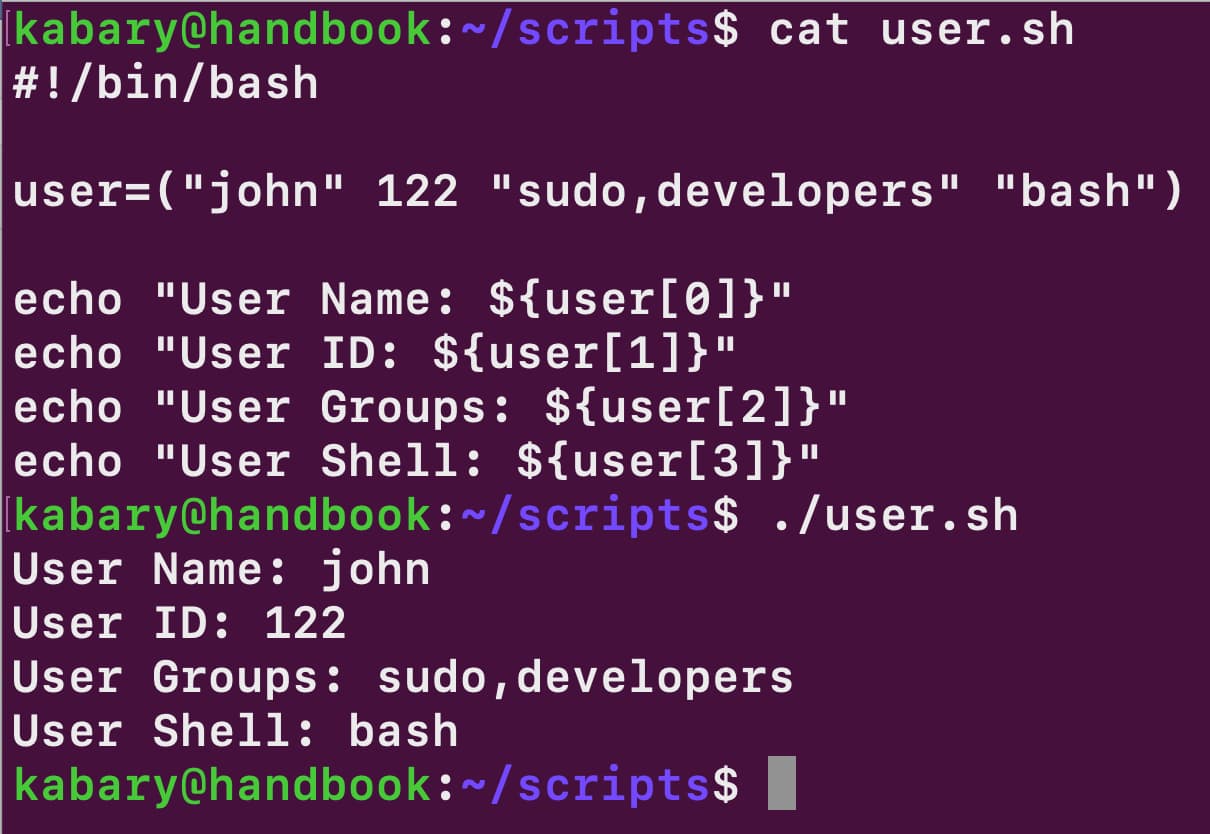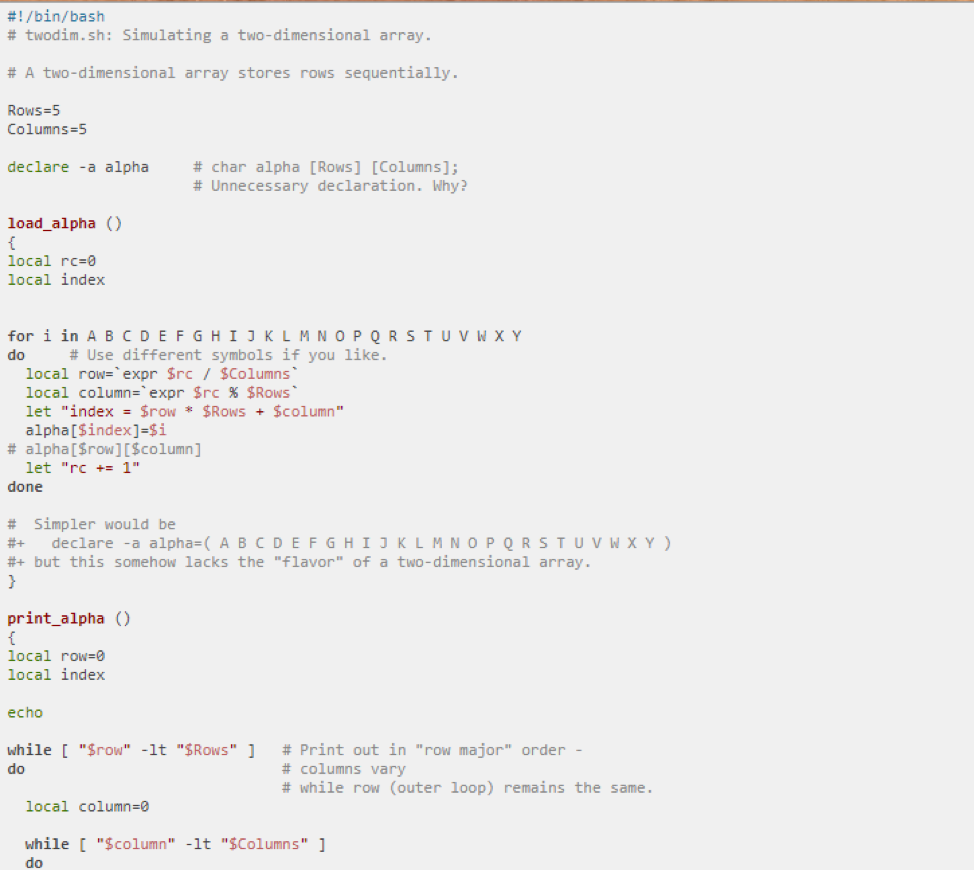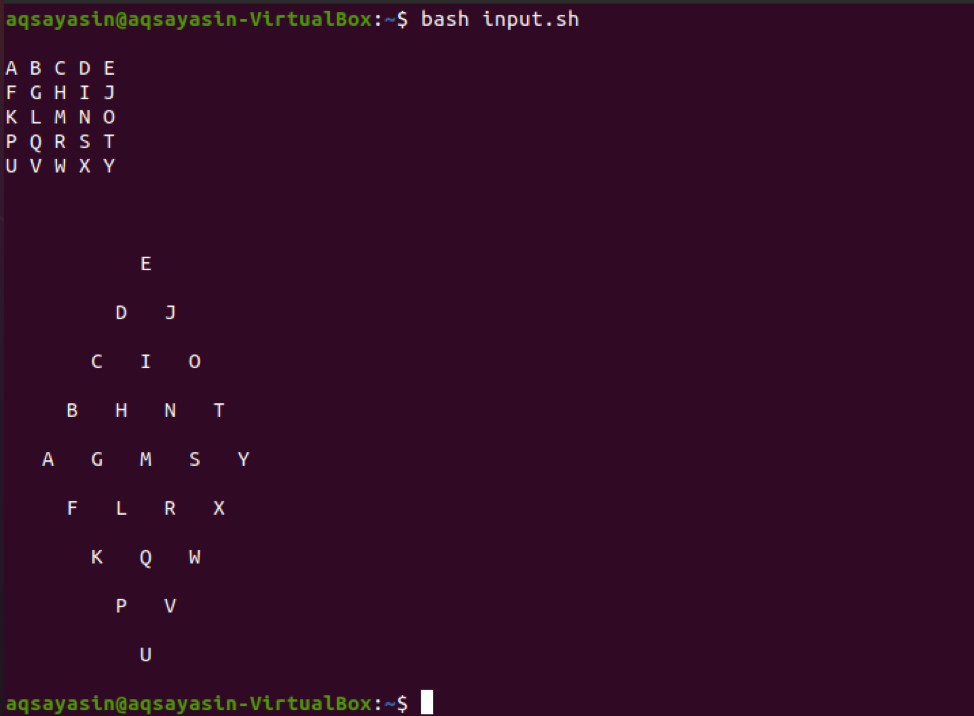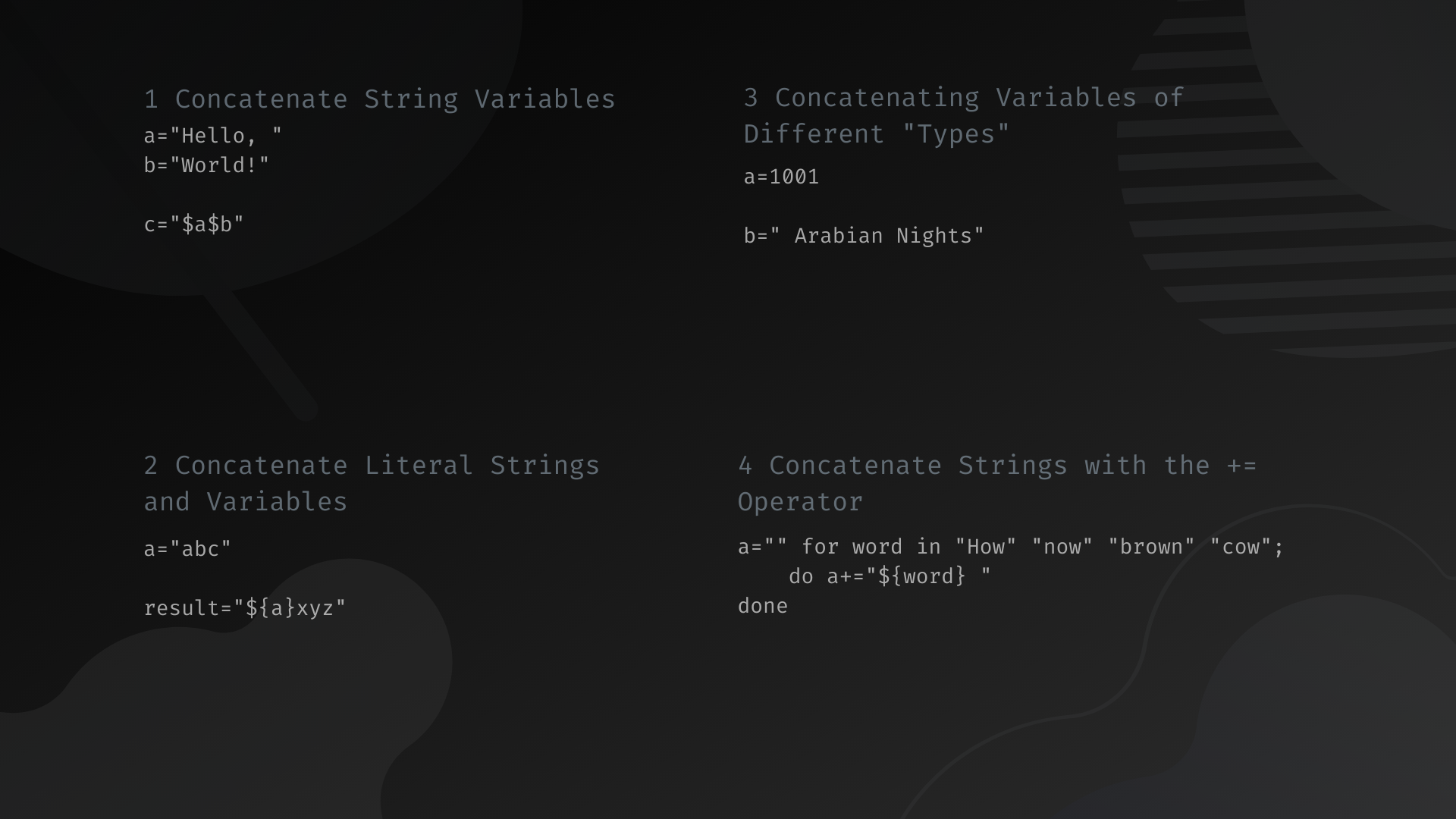Array BASH, multiple arrays and a loop YouTube

Think of Bash's arrays of strings as a well-organized library - allowing us to store and manipulate collections of strings, providing a versatile and handy tool for various tasks. In this guide, we'll walk you through the process of working with arrays of strings in Bash, from their creation, manipulation, and usage. We'll cover.
Loop Through Array Bash A Comprehensive Guide To Iterating Through Arrays In Shell Scripting

To declare your array, follow these steps: Give your array a name. Follow that variable name with an equal sign. The equal sign should not have any spaces around it. Enclose the array in parentheses (not brackets like in JavaScript) Type your strings using quotes, but with no commas between them. Your array declaration will look something like.
How to use arrays in Bash

Can I collect values not into arrays but into space separated strings? bash; shell-script; bash-array; Share. Improve this question. Follow edited Dec 16, 2021 at 21:41. choroba. 47.3k. issue with bash arrays containing both commands and paths. 2. Bash - mix/merge/combine two different arrays with same length.
Bash Array of Strings Tutorial LinuxTect

I am fairly new to bash. I want to call a script located on a remote linux machine, passing some normal arguments and one array. The array contains string elements which may have spaces. I wrote a minimal example: on the server side: copyFiles.sh
Loop through an array of strings in Bash? YouTube

Note that the double quotes around "${arr[@]}" are really important. Without them, the for loop will break up the array by substrings separated by any spaces within the strings instead of by whole string elements within the array. ie: if you had declare -a arr=("element 1" "element 2" "element 3"), then for i in ${arr[@]} would mistakenly iterate 6 times since each string becomes 2 substrings.
How to Use Arrays in Bash Shell Scripts

The first thing we'll do is define an array containing the values of the --threads parameter that we want to test: allThreads=(1 2 4 8 16 32 64 128) In this example, all the elements are numbers, but it need not be the case—arrays in Bash can contain both numbers and strings, e.g., myArray=(1 2 "three" 4 "five") is a valid expression.
Array bash string, separated by spaces, to array YouTube

What you're doing is tricky. The normal way is to avoid this and just pass the array values as arguments. In order to have both options, you would have to use eval: #!/bin/bash function populate_array { if [ "$#" -gt 0 ] ; then # Enter array w/ elements as argument of executable # Note the quotes, they are needed array=("$@"); n=$# else # Invoke executable with no arg, enter array element.
How to Simulate an Array of Arrays in Bash

Iterating Through an Array of Strings with Spaces. When dealing with an array of strings with spaces, we need to take extra care when setting up the loop. This is because Bash will interpret each space-separated word as an individual item in the list, not as part of the same string.
Array Bash script to convert a string with space delimited tokens to an array YouTube

Hi I am having an array and want to add strings that contain spaces. How can this be done? the following example code shows what I want to do: #!/bin/bash # works on BASH versions >4 ShowArray.
Bash String Length List of Ways of Bash String Length Example

Steps and examples in bash split string into array. Convert variable into array. split string into array by delimiter. bash split multi line string into array. The string is split into words based on spaces, and each word becomes an element of the array myvar. Limitations: Automatically assumes spaces as delimiters, and custom delimiters are.
[Solved] Bash script to convert a string with space 9to5Answer
3. Using the read Command. Another technique to split a string into an array is to use the read command with the -a option. The read command's purpose is to capture user input into shell variables. Similar to the for loop, it uses the characters in the IFS variable as field separators: $ words=() $ read -a words.
How to Simulate an Array of Arrays in Bash

In order to convert a string into an array, create an array from the string, letting the string get split naturally according to the IFS (Internal Field Separator) variable, which is the space char by default: or pass the string to the stdin of the read command using the herestring ( <<<) operator: For the first example, it is crucial not to.
How to Concatenate Strings in Bash ByteXD

In the code below, the third array element is "Accessory Engine". I tried to set the space character using the \ symbol, but this doesn't help. In the larger routine (not included here), I use the array elements to automatize some stuff with command line tools. Those command line tools would accept "Accessory Engine" as an input. echo ${i} Now.
Bash Indexed Array Explained With Examples Its Linux FOSS

In bash, you'd use readarray to read the lines of a file or from the output of some command into an array; however that was only added in version 4.0 released in 2009, but macos still comes with bash 3.2.. macos comes with zsh though which is a much better shell. To get the non-empty lines of the output of a command you'd split it with the f parameter expansion flag (which splits on linefeed.
How to Simulate an Array of Arrays in Bash

1. Declaring Array of Strings with Spaces in Bash. The foremost step in working with an array in Bash is to declare it. The declare -a command can be used for the explicit declaration of an array with the initialization of elements of strings containing spaces. The full syntax to follow is declare -a array_name=("elements").Below is an example: #!/bin/bash # Define an array with elements.
Array Loop through an array of strings in Bash? YouTube

All of the answers here break down for me using Cygwin. It does weird things if there are spaces in file names, period. I work around it by creating an "array" in a text file listing of all elements I want to work with, and iterating over lines in the file: Formatting is mucking with intended backticks here surrounding the command in parenthesis: IFS=""; array=(find . -maxdepth 1 -type f.
.

